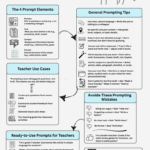Healing the parent-child relationship is not about forgetting what happened in the past; it’s about learning from it. It’s about seeing it through new eyes. Many of us carry unhealed stories about our parents — what they did or didn’t do, how they failed to see us, or how they made us feel unloved. These memories shape our emotional world and often define how we relate to others as adults.
But real healing happens when we step beyond those familiar stories of hurt. It begins when we look past the roles of “parent” and “child” and explore what truly unfolded between two human beings doing the best they could with what they knew.
Healing the Parent-Child Relationship
Healing the parent-child relationship is not a one-time event; it’s a gradual unfolding of awareness, understanding, and acceptance. It doesn’t always look like reconciliation or frequent phone calls. Sometimes, it simply means no longer being emotionally triggered by the past. Healing might be the ability to remember without pain or to speak your truth calmly without fear.
It often begins quietly — the moment you stop blaming and start observing. You might still feel sadness, but it’s no longer heavy. You might still recall the hurt, but it doesn’t control you. Healing shows up as emotional freedom — when your peace is no longer dependent on someone else’s behaviour or approval.
Real healing also includes boundaries. You can forgive your parents and still choose distance if closeness feels unsafe. You can love them without allowing old patterns to repeat. Forgiveness doesn’t mean forgetting what happened; it means releasing the hold that the story once had on your heart.
Most importantly, healing teaches you to parent yourself — to give yourself the love, understanding, and validation you once longed for. When you learn to nurture your own emotional needs, you stop expecting others to fill the void that you have within yourself. That’s when true peace begins.
And as you heal, something beautiful happens: the energy of compassion naturally extends outward. You begin to interact with others — your partner, children, or friends — from a place of empathy instead of reaction. The cycle of pain slowly breaks, and in its place grows a new pattern — one rooted in awareness, patience, and love.
Healing the parent-child relationship, therefore, is not just about repairing the past. It’s about freeing yourself in the present. It’s about transforming inherited pain into conscious peace, so that future generations inherit understanding instead of wounds. That is the quiet miracle of true emotional healing — the point where love replaces hurt, and peace finally feels like home.
Importance Of a Healthy Parent-Child Relationship
The Power and Limitation of Parental Labels
The words “mother” and “father” hold deep emotional meaning. They are powerful archetypes tied to our earliest feelings of safety, love, and belonging. When those expectations are not met, pain, resentment, and disappointment naturally follow.
Yet these same labels can hide an important truth: before they were parents, they were individuals — people shaped by their own upbringing, fears, and emotional wounds. They carried unresolved pain long before you were born. Recognising this helps us approach them with compassion instead of judgment.
Seeing them as “mom” or “dad” often locks us into rigid expectations. Seeing them as humans allows healing to begin.
Seeing Parents as Human Beings
Imagine for a moment that you could take away the titles. See them not as parents but as people — with dreams, doubts, and pain of their own. When you do this, the illusion of authority and blame starts to fade.
Perhaps your mother grew up without emotional support. Perhaps your father was taught to hide his feelings. What they passed on was not always intentional harm — often, it was the echo of their own unmet needs.
This perspective doesn’t excuse hurtful actions, but it helps you understand them. When you realise their behaviour came from their own pain, you stop taking it personally. That shift alone can transform the emotional distance into understanding.
Understanding Without Blame
Healing the parent-child relationship requires releasing the need to blame. Once you recognise that most people act from conditioning rather than awareness, forgiveness stops being something you force. It becomes something that naturally arises.
You begin to see that no one was entirely at fault. They were acting from fear, confusion, and emotional patterns they didn’t know how to break. You were reacting from your own pain and unmet needs. Everyone was doing the best they could with their level of consciousness.
This understanding doesn’t mean denying your pain — it means freeing yourself from it.
Letting Go of the Old Story
If you’ve been waiting for an apology, you might wait forever. Healing the parent-child relationship is not about getting an apology; it’s about releasing your dependence on one. When you stop expecting them to “make it right,” you reclaim your own power to heal.
You can write about your experiences, express your emotions, and name your pain. But do it with the intention to release, not to reopen wounds. Let the younger version of you finally rest. That part of you no longer needs to carry the weight of disappointment.
When you let go of what they “should have done,” you open space for who you can become now.
The Shift Toward Compassion
Once this shift happens, something beautiful unfolds. The heart begins to open. The nervous system relaxes. The story loses its emotional charge.
You start to love them — not as the perfect parents you wished for, but as the imperfect humans they have always been. You also begin to love yourself — not as the child who was hurt, but as the adult who is now free.
Compassion replaces blame. Peace replaces resentment. And healing becomes a living experience, not a concept.
The Power Of Parental Love: Nurturing Bonds That Shape Lives
5 Tips to Heal the Parent-Child Relationship

1. See Them as People First
The first step in healing the parent-child relationship is to look at your parents as individuals, not as authority figures who were supposed to be perfect. Every parent was once a child shaped by their own environment, upbringing, and emotional wounds. When you begin to see them as people with fears, insecurities, and limitations, you start to understand why they behaved the way they did.
For example, a distant parent may have grown up in a home where emotions were never expressed, while an overprotective parent may have learned fear from their own unstable childhood. Seeing them through this human lens softens the walls of resentment and helps you shift from judgment to empathy — a crucial step toward healing.
2. Stop Waiting for Closure from Them
Many adults hold on to pain because they’re waiting for an apology or acknowledgement from their parents that may never come. But healing the parent-child relationship doesn’t depend on what they say or do now; it depends on your willingness to let go of the need for external validation. Closure is an inside job.
You can create it by accepting what happened, acknowledging your emotions, and deciding to move forward even without their participation. Instead of waiting for them to make peace with you, focus on making peace within yourself. This shift transforms your healing from something dependent on others into a personal act of emotional freedom.
3. Write Your Truth
Writing is one of the most powerful ways to process emotional pain. When you put your feelings on paper, you give voice to the parts of yourself that have been silenced or misunderstood. Journaling about your childhood experiences, both good and bad, allows you to see patterns, express emotions, and release suppressed anger or sadness in a healthy way.
You might write a letter to your parents — one you don’t have to send — simply to express what you wish you could say. This process helps separate the emotional charge from the actual event, giving you clarity and a sense of relief. Writing your truth is not about blame; it’s about reclaiming your narrative and owning your story with compassion.
4. Notice Inherited Patterns
Many of the struggles in the parent-child relationship come from generational patterns — cycles of fear, control, silence, or emotional neglect that pass from one generation to another. When you take a step back and look at your family history, you might notice repeating behaviours or attitudes. Recognising these patterns is a turning point in healing because it allows you to consciously stop what no longer serves you.
For instance, if your parents avoided emotional conversations, you can choose to be more open and expressive in your own relationships. By becoming aware of these patterns, you shift from being unconsciously influenced by your past to consciously shaping a healthier future.
5. Choose Compassion Every Day
Compassion is the heart of healing the parent-child relationship. It doesn’t mean denying your pain or excusing harmful behaviour. It means recognising that both you and your parents were doing the best you could with the awareness available at the time. Compassion invites understanding where anger once lived. It allows you to hold space for your own hurt while also seeing their pain. You can practice compassion through small acts — sending them kindness in your thoughts, speaking with gentleness, or simply letting go of the need to prove you were right. Over time, compassion dissolves the emotional barriers that resentment has built, making room for peace and emotional freedom.

Turning Awareness into Lasting Peace
Healing the parent-child relationship is one of the most courageous acts of self-growth. It asks us to look beyond the labels of “mom” and “dad,” to release old stories of blame, and to see our parents — and ourselves — as imperfect humans learning through pain and love. When we stop waiting for others to change and focus instead on understanding, forgiveness becomes natural. Peace begins to replace anger, and compassion takes the place of resentment.
This healing journey may not change your past, but it transforms how the past lives within you. Each small step — whether through reflection, journaling, or practising compassion — moves you closer to emotional freedom. Remember, you don’t have to reconcile to heal, and you don’t have to forget to forgive. You simply need to see clearly, feel fully, and let go gently.
Agony Aunties on Healing Parent-Child Relationships
Healing your relationship with your parents is more than just mending what’s broken; it’s about transforming your entire perspective. This profound shift can break cycles of dysfunction, build strong bonds, and help you recognise your own worth and potential. – Heal Your Relation with Parents & Skyrocket Your Life
Conclusion
The reward of healing the parent-child relationship goes far beyond repairing old wounds. It opens your heart to healthier connections, greater emotional intelligence, and a life defined not by pain, but by peace.
If this message resonates with you, take a few quiet moments today to reflect on your own story. Ask yourself — what part of my past am I ready to see with new understanding? Write about it, meditate on it, or share it with someone you trust.
Healing begins with awareness, and awareness begins with one honest look within. Start there — your peace is waiting.
FAQs About Healing the Parent-Child Relationship
1. How can I start healing a broken relationship with my parent or child?
Begin with open communication and empathy. Acknowledge past hurts without blame, listen actively, and express your feelings honestly. Start small by rebuilding trust through consistent actions like spending quality time together or sending thoughtful messages that show care and understanding.
2. What if my parent or child is not ready to talk or reconcile?
Healing takes time, and not everyone is ready at the same pace. Respect their boundaries while keeping the door open for future communication. Continue showing love through kind gestures or supportive behaviour, even from a distance. Focus on your personal growth and emotional health during this period.
3. Can therapy help in repairing a parent-child relationship?
Yes, therapy—especially family or relationship counselling—can be extremely beneficial. A professional therapist provides a neutral space for both sides to express themselves, understand emotional triggers, and learn effective communication skills. Therapy often accelerates healing by addressing deep-rooted issues constructively.
4. How do I forgive a parent or child who deeply hurt me?
Forgiveness is a personal process that doesn’t mean forgetting or excusing the hurt. It means freeing yourself from resentment. Reflect on their perspective, acknowledge your pain, and gradually release the emotional burden. Journaling, prayer, or meditation can also support this healing journey.
5. What are some daily practices to strengthen the parent-child bond?
Consistency and compassion matter most. Share meals, have regular conversations, express appreciation, and practice patience. Small acts—like asking about their day, giving a hug, or sending an encouraging message—can slowly rebuild connection and trust over time.
Thank you for taking the time to explore this post. I hope you found it both insightful and enjoyable.
Remember, your sharing can make a positive impact! Please share this post across your social media and other networks, allowing others to benefit from its content.
References: Psychology Today
PVM

Mathukutty P. V. is the founder of Simply Life Tips, a blogger, content writer, influencer, and YouTuber passionate about learning and sharing. Guided by “Simple Living, Creative Thinking,” he believes in the power of knowledge sharing and lifelong learning.







